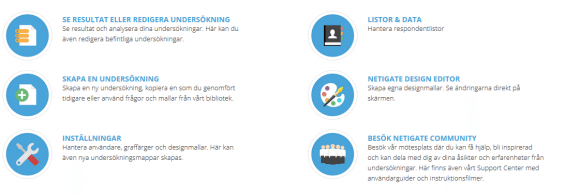
On a flight from Berlin
I would like to tell you about a customer experience I had which I think is a good example of the importance of letting your customers know that you listen to their opinions. A couple of weeks ago I was about to fly home to Stockholm after a visit to our office in Berlin. It had been a long day and I was tired. Just before boarding, fever struck me and I felt bad pretty quickly. Immediately after boarding the plane, I asked the stewardess for a painkiller to reduce the fever and was told that I would have to wait until we were airborne. That’s fine, I thought, and waited until we were in the air when the crew started serving food and drinks I asked again for painkillers and now got the answer “just wait a couple of minutes”. After another 20 minutes, I still had not received any painkillers and was now starting to feel really bad. After asking a third time, I was given some aspirin, which is great for a headache but useless for a fever. This was, as you can understand, not a very pleasant flight for me and I was not really happy about the service or the airline company.
This could have been the end of the story, with me hurrying to the pharmacy with a bitter aftertaste of bad service. But the next morning I received an email from the airline asking about my experience of the flight. Great, now I had a good chance to really speak my mind about my experience! I answered the questions and described how I felt about the service on the plane. I also added my phone number and email address, even though they already had it, because I wanted to make it clear that they were very welcome to contact me. So what happened thereafter? To my great disappointment, I heard nothing from them.
Three weeks later I flew with the same airline again, a flight already booked before my bad experience. The day after my flight, guess what I received in my inbox? Yes, an invitation to answer another survey. Do you think I answered the survey?
Of course I didn’t. The only question from this company I would like to answer would look something like this:
“On a scale of 1-10, how would you rank your trust that we will take your comments seriously and take action?”
When a survey becomes counterproductive
This was, and still is, my attitude towards surveys, newsletters and all other communication coming from this airline. So what went so terribly wrong here? Was it all because of the stewardess on the plane and because she did not give me the right pills on time? No, my flight experience is a good example of a company whose intention is correct, sending out a survey every time someone flies with them. But in this case, with their lack of action, the survey was instead counterproductive.
Firstly, I had a bad experience because the employees didn’t provide me with, in my opinion, good customer service. Then I was actually glad to be able to share my experience with the company immediately after flying. But when they didn’t follow up, my satisfaction with the company decreased even lower than right after the flight. I had invested my time giving them feedback, but nothing happened.
For me, this shows that I was only a number for their average customer satisfaction score, meant for the management only, and not for customers to tell their experience. I’m am having a hard time seeing that my feedback was actually passed down to the people who need it. And even if it was, how would I ever know? I was not expecting the airline to give me five free flight tickets in first class around the world. I was not even expecting a phone call or a nice email from a manager. But I was expecting to hear something. When it comes down to it, I just wanted them to say, you have been heard, you are not just an individual score in an Excel spreadsheet.
People want to be heard
Historically, the majority of customer feedback has been anonymous. It was collected in a “market research mode”, and the logic behind this was built on a belief that customers would not share honest feedback unless the survey was anonymous.
I would say this belongs to the past and not to the future. Nowadays people want to be heard – they want their feedback to be acknowledged. They want to know that the time they invested sharing feedback meant something and was acted on.
I believe that customer feedback is vital for a company and much more than just an average number for the management. It becomes an important part of the entire customer communication. Instead of seeing surveys as a one-way collector of opinions, I believe in closing the loop by paying attention to how the customers respond and creating a dialogue. I think this is essential for every company that wants to build long-lasting customer relationships.
More and more companies place their CRM system at the centre of the company, which means that the customer is also placed at the centre of planning and execution, and with CRM system serves as the core of the IT process. It enables companies to have an automatic process not only for feedback but also dialogue. When every customer is handled in the CRM system, a survey can automatically be sent after a certain event such as when a customer finalizes an order, makes a purchase or contacts support. But it does not end there. The data is then sent back into the CRM system, directly to the specific account owner or manager who has the opportunity to see the response and act on the customer’s answers. That is the true meaning of closing the loop.
What would this mean for the airline
With a system for easily closing the loop, my feedback would have gone to the person whose job it is to take action on feedback. In this particular case, perhaps a service manager who could have responded to me, letting me know that they heard my opinion and would take action on it. The particular employees I experienced bad service from could have received my feedback, which would help them improve their service. And that, of course, eventually means happier customers. To summarize: make it possible to listen to your customers, let your customers know that they have been heard and work towards a dialogue rather than one-way communication.
More about customer satisfaction
Download my free white paper on how to increase customer satisfaction, gain loyal customers and maximize profitability.
What do you think customer experience?
Feel free to write your thoughts on this in the comment fields below.



